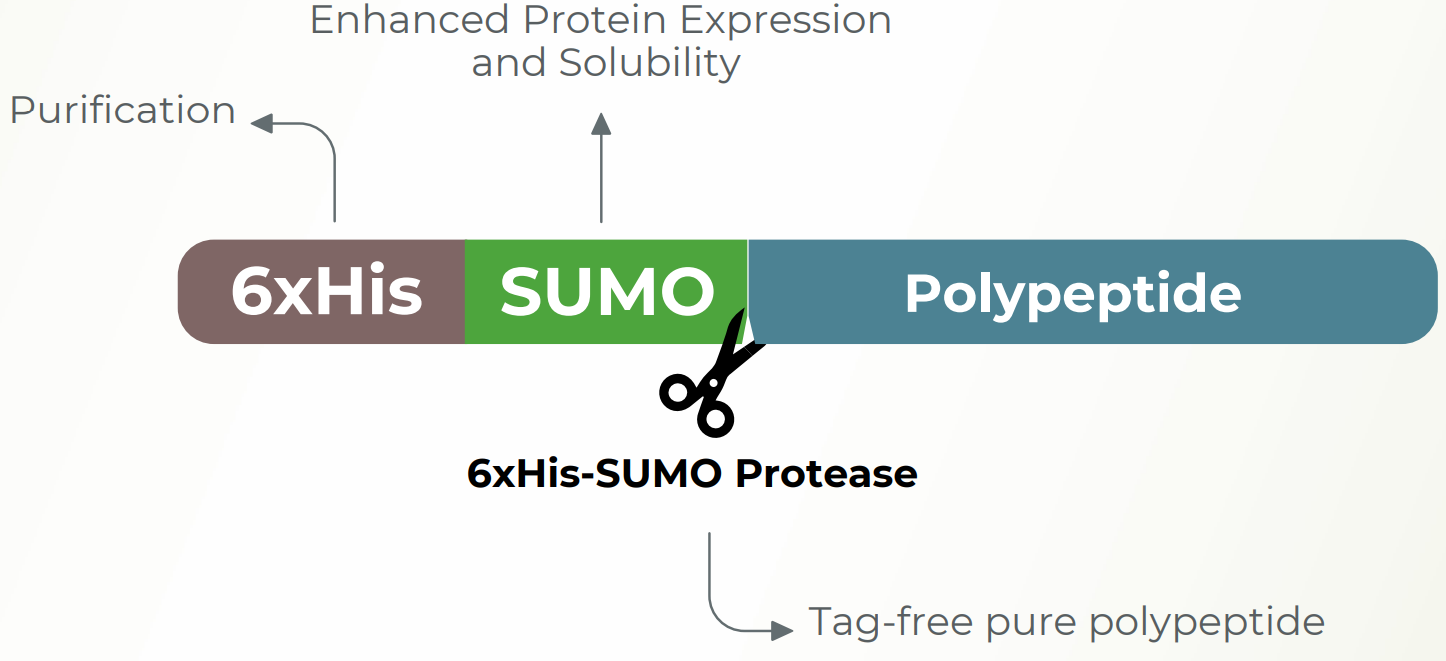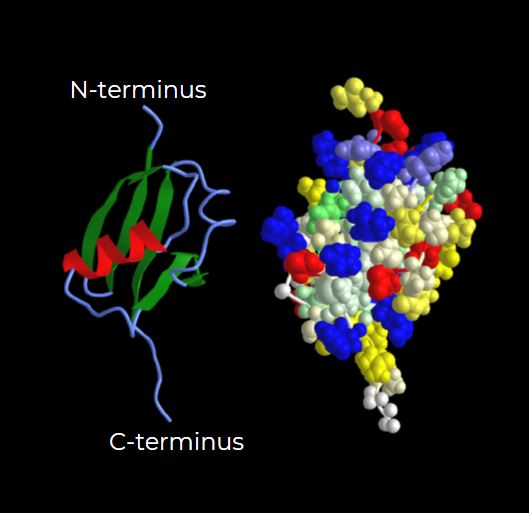Polypeptide Manufacturing
Advanced SUMO technology for cost-effective polypeptide production
Need Help?

- Polypeptide Manufacturing with SUMO
- Errors occur in sequence with certain amino acids during chemical synthesis
- Not all chemically synthesized peptides fold correctly
- Yield of polypeptides decreases along with the length of the polypeptide
- SUMO system has been proven as the best method for recombinant production of polypeptides, especially longer peptides.
- The SUMO Tag
Hydrophobic Core
Improves correct folding of the fused polypeptides
Hydrophilic Surface
Keeps the partner protein soluble
Precise Cleavage
SUMO protease recognizes SUMO structure to cleave at the junction
- Benefits of SUMO
Increased Yield
Stabilize polypeptide to increase the yield significantly
Desired N-Terminal
Encode desired N-terminal sequence with precision
Correct Folding
Ensure correctly folded polypeptide due to SUMO chaperoning properties
- Cost-Effective Manufacturing
SUMO system is the most cost-effective way to manufacture growth hormones, glucagon-like polypeptides, and antimicrobial and industrial polypeptides.
Contact LifeSensors to decrease the cost of goods for your polypeptide production. We will guide you about the best way to manufacture your polypeptide and transfer the manufacturing process to GMP sites.
- System Principle

Expression
SUMO tag enhances polypeptide expression
Purification
6xHis tag assists in purification process
Cleavage
SUMO protease releases polypeptide
- SUMO System Superiority
- Proven Applications
Unique Advantage
Removal of the polypeptide from the tag is costly or impossible due to the inability of the proteases to cleave and provide the desired amino acid sequence.
LifeSensors' SUMO proteases recognize the SUMO structure and does not discriminate between fused polypeptide cleavage sites by generating the desired N-terminal sequence.
- Cost Comparison

- Pilot Scale Manufacturing
We encourage inquiries to establish cost-effective pilot scale manufacturing of polypeptides. The manufacturing process can be seamlessly transferred to GMP facilities.
- Resources
Peptide Production Presentation
Preview our comprehensive presentation on peptide production techniques
- LifeSensors' SUMO Publication Sheet
To use, simply utilize the drop-down arrows in order to search for your target of interest or application category. LifeSensors SUMO technology has been utilized for the expression of many different targets and continues to be utilized worldwide.
- Featured Products
- SUMO Protein Expression Products
Product / Tools Name
SKU
Categories
Add to cart
- References
- Ishida Y et al, AMB Express. 2016
- Islam, M.R., Plant Cell Rep, 2019
- Yang NJ et al, Front Immunol. 2021
- Derakhshani A et al, Int J Biol Macromol. 2020
- Kotál J et al, Int J Mol Sci. 2021
- Quick Links
- https://www.fishersci.com/shop/products/promega-protev-plus-protease-2/p-4389612
- https://www.sigmaaldrich.com/US/en/product/sigma/ge27084601
- https://www.neb.com/products/p8010-factor-xa-protease#Product%20Information_Properties%20&%20Usage
- https://www.neb.com/products/p8070-enterokinase-light-chain#Product%20Information
- https://lifesensors.com/product/sp4010-sumo-protease-1/

